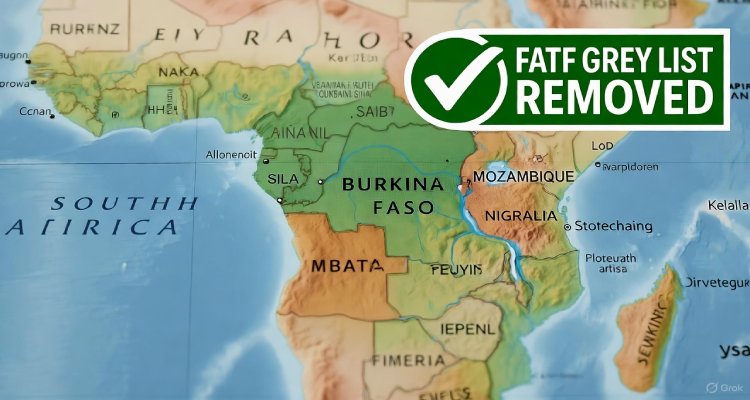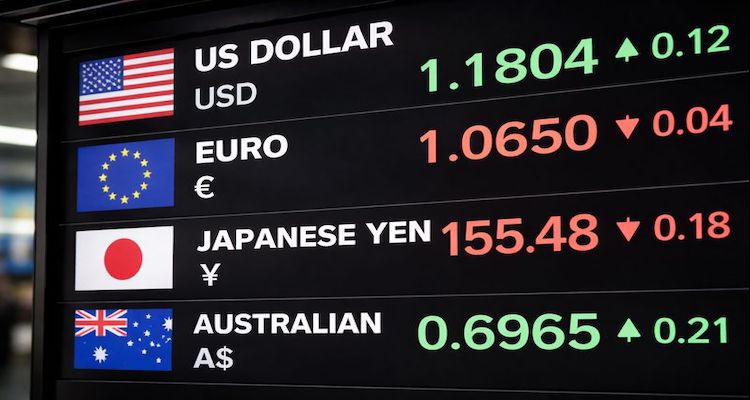FATF Removes Four African Countries from Grey List: A New Chapter in Combating Illicit Finance

FATF removes Burkina Faso, Mozambique, Nigeria, and South Africa from its Grey List after improvements in anti-money laundering and counter-terrorism financing measures, boosting investor confidence.
Introduction: A Key Milestone in Global Financial Integrity
In a significant move that signals progress in the fight against illicit finance, the Financial Action Task Force (FATF) announced on October 24, 2025, the removal of Burkina Faso, Mozambique, Nigeria, and South Africa from its Grey List. This decision, announced at the conclusion of a rigorous plenary meeting in Paris, marks a positive shift for these African nations, often scrutinized for vulnerabilities in combating money laundering and terror financing.
Context & Background: Understanding the FATF and Its Lists
The FATF, established in 1989 by ministers from its member jurisdictions, serves as the global watchdog against money laundering, terrorist financing, and related threats to the international financial system. Composed of 39 members and regional organizations like the European Commission and Gulf Cooperation Council, the FATF drives worldwide reforms by setting standards to strengthen national legal and regulatory frameworks.
FATF maintains two critical lists:
-
Black List: Jurisdictions with severe strategic deficiencies, risking global financial stability. Countries like Iran, North Korea, and Myanmar currently feature here.
-
Grey List: Countries under increased monitoring due to significant but resolvable deficiencies. These nations commit to corrective actions to meet FATF standards but face financial and reputational challenges while listed.
Burkina Faso, Mozambique, Nigeria, and South Africa joined the Grey List between 2021 and 2023 due to concerns about their anti-money laundering (AML) and counter-terrorism financing (CTF) regimes.
Main Developments: The Removal and Its Significance
At the FATF plenary held from October 21–24, delegates from over 200 jurisdictions convened to assess global efforts against illicit finance. After thorough evaluation, the four African countries were deemed to have made substantial improvements, prompting their removal from the Grey List.
This decision is particularly impactful for Nigeria and South Africa, two of Africa’s largest economies, previously flagged for gaps in financial regulations. Mozambique and Burkina Faso’s progress also signals broader regional advances.
FATF President Elisa de Anda Madrazo highlighted that while removal from the list is a milestone, sustained vigilance is required. She specifically cautioned countries like Pakistan, removed recently from the Grey List, emphasizing the ongoing threats from terror groups exploiting digital financial technologies.
Expert Insights and Public Reactions
Financial experts praise the FATF’s decision as recognition of intensified reforms in these nations, especially Nigeria and South Africa, which have strengthened regulatory oversight, improved financial intelligence units, and enhanced transparency.
Dr. Amina Okafor, a renowned African financial analyst, stated, “This removal boosts investor confidence and should facilitate greater integration into the global financial system. However, maintaining rigorous AML/CTF frameworks remains critical.”
Conversely, some civil society groups urge caution, warning that systemic challenges such as corruption, political instability, and illicit flows require constant attention despite this progress.
Impact and Implications: What Lies Ahead?
Removal from the Grey List alleviates several economic and diplomatic pressures. Countries on the Grey List often face limits on financial aid from international bodies like the IMF, reduced foreign investment, and difficulties in international banking relations.
For Burkina Faso, Mozambique, Nigeria, and South Africa, this development can lead to:
-
Improved access to international capital markets and development financing.
-
Enhanced bilateral trade relations, especially within global supply chains.
-
Greater opportunities to attract foreign direct investment.
-
Strengthened domestic confidence in their financial sectors.
However, FATF’s warning remains clear: these countries must continue to implement and update measures against financial crimes proactively.
Globally, the decision underscores a cautious optimism in the fight against illicit finance, while highlighting emerging challenges, such as digital currency misuse by terrorist organizations. Enhanced international cooperation and evolving regulatory frameworks will be key to sustaining progress.
Conclusion: Consolidating Gains and Looking Forward
The removal of Burkina Faso, Mozambique, Nigeria, and South Africa from the FATF Grey List represents significant progress in global efforts to combat money laundering and terrorism financing. This achievement not only reflects the commitment of these nations to financial reform but also signals growing confidence in their regulatory systems.
Yet, as FATF President Madrazo’s remarks remind us, the battle against illicit finance is ongoing. Continuous reforms, vigilance, and adaptation to new financial technologies and threats will determine whether these gains are sustainable.
As these African countries consolidate their reforms and strive for full compliance with international standards, the global community watches closely—recognizing that robust financial integrity mechanisms serve as pillars of security, economic growth, and development worldwide.
Disclaimer :This article is for informational purposes only and does not constitute financial or legal advice. Readers should consult appropriate experts for specific guidance related to FATF regulations and implications.










